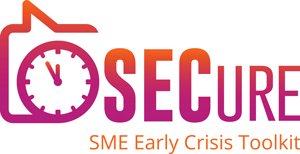The complexity of tasks and projects is constantly increasing, and several people are often involved in their implementation. Meetings are unavoidable in order to find solutions together and to exchange ideas. However, if some rules are not followed during meetings, they can easily be counterproductive and turn out to be “time eaters”.
To avoid such and similar frustrating experiences, every meeting must be well prepared. All participants should adhere to rules to be formulated in advance. In this way, the efficiency of meetings can be significantly increased even in the short term.
- prepare meetings
Before calling a meeting, the items listed in the checklist: “Preparing meetings” should be followed (see below).
- hold a meeting
Once the framework conditions are clear and a meeting has been invited, it is important to conduct it successfully. Here, too, it has proven useful to introduce fixed rules that must be enforced by the meeting leader in the event of deviations. The aim is to conduct the meeting in a short and condensed form with tangible results.
This begins with the obligation of the participants to appear on time, continues with the undisturbed conduct of the meeting (bindingly stipulate: no smartphones, tablets for checking mails, etc.) and ends with the prompt preparation of meaningful minutes, which are considered adopted if no one reports within one to three days after the minutes have been sent.
Checklist: Prepare for meetings
- Is the meeting necessary at all, or are there alternatives, such as a face-to-face meeting with a project team member or requesting documents to briefly review on your own?
- If the meeting is necessary, what topics or agenda items should be covered and by whom?
- Very important: Which goals should be achieved for each agenda item, e.g., exchange of information, presentation of work status, project kick-off, or decision-making.
- Who should or must participate? And do all participants need to be present for the entire meeting?
- Participants must be informed about the topics, approach, and expectations/objectives, as well as the location, time, and, if applicable, their own attendance time, approximately two to three days before the meeting.
- There must be a person responsible for each agenda item. This person must know the goal to be achieved and be given a specific time for the presentation on this item. He/she is also responsible for the implementation of the next tasks when it comes to advancing the topic discussed.
- Documents that are needed in the meeting, for example, to make informed decisions, are to be distributed to all participants by the person responsible for that item at least one to two days before the meeting.
- Each participant must read the documents in advance to avoid unnecessary reading and discussion time.
- Speaking times should be limited, depending on the relevance of the topics. Information on a project can safely be given in a few minutes; important decisions will require a little more time. It should be clear that exceeding the speaking time is only possible in justified exceptional cases. Time requests should be submitted to the moderator. The latter must decide whether the request can be granted. In addition to the presenter, the moderator is also responsible for keeping to the times and has the right and duty to intervene if there is a threat of exceeding the time limit.
- There are clear communication rules that every participant knows and that the moderator ensures are observed in case of doubt. Each participant should receive them in a meeting template, for example, or they should be posted on a flipchart for everyone to see in the meeting room. Important communication rules can be, for example:
- Each participant is responsible for making do with the speaking time allotted to him or her and for staying within the time frame.
- Each participant is allowed to finish speaking; the others listen and do not interrupt.
- Questions should only be asked after the contribution.
- Every speech/content contribution is important.
- Each participant must be brief.
- No contribution to the discussion or any response to it contains a personal attack.
- Insofar as the meeting leader is lower in the hierarchy than one or more participants, the former should be expressly authorized by management to be able to make all relevant decisions in the meeting without fear of sanctions later, for example, if he or she points out to a superior that the speaking time has ended.
- The room must be booked/reserved and “appropriate” catering should be provided, e.g. coffee, tea and water, some pastries if necessary. In the case of longer meetings with more extensive work, e.g. important decisions in projects, there may also be an arrangement for lunch.
It can be helpful to create a “meeting template”, which contains the once defined rules for meetings in the upper part and leaves space for meeting agenda items, contents, responsible persons, presentation time, participants and the desired result in the lower part. The template can be used at the same time to create the minutes, so that no additional documents are necessary.
Practical tip: In practice, the unpunctual appearance of individual participants is often problematic. Regardless of this, always start the meeting on time (see points 1 and 2 of the rules). Agree that late participants will have to pay a small amount of money for a joint meal or similar at the end of the year. You will notice very quickly that all participants show up on time.
Rules for meetings:
- Our meetings always start on time.
- We start even if not all participants are present.
- Meetings are not interrupted by telephone calls or other events. Cell phones, etc. are turned off or muted. There are no breaks.
- Our meetings last no more than 60 minutes, regardless of the number of topics or need for discussion.
- There is an agenda item (TOP) for all topics with content, presenter, time and desired outcome. The agenda with all tops is sent by file in good time before the meeting.
- Documents required for preparation are distributed by the presenter of the TOP in good time before the meeting so that everyone can prepare.
- New or last-minute topics will be included only in urgent cases.
- A leader and a keeper of the minutes are appointed for each meeting. The leader decides on contributions to the floor, permission to speak, timekeeping and, if necessary, the inclusion of new topics. The leader may shorten speeches or change the order of events.
- The minutes are sent to all participants as a file no later than one working day after the meeting. It is considered approved if there are no objections within 2 working days.
- follow up meetings
The end of a meeting is not usually the end of the work. At least some aspects should be considered that will help to make future meetings even more successful. In particular, it is advisable to consider the following points:
Checklist: Follow-up meetings
- Were the preparations sufficient, or were there problems?
- What were they and what can be done to avoid them in the future?
- Did the meeting go as expected?
- If not, what problems were there and how can these be eliminated in future?
- Are the minutes with the necessary documents available as agreed and do they correspond to the content of the meeting?
- Case by case: Has it been possible to direct those higher up in the hierarchy?
- If necessary, what needs to be done to do this better in the future, e.g. have a clarifying discussion?
- Is it followed up whether the agreed tasks and work have been completed by the deadline?
- Is this noted accordingly in the minutes or at the next meeting?
- Is it ensured that in case of unexpected problems there is support for the person in charge, e.g. by extending their deadline or allocating additional resources to still achieve the result?
All information and details in our articles and information have been compiled to the best of our knowledge. However, they are provided without liability. This information cannot replace individual advice in specific cases.
Link to the german version: https://thevisionworks.de/konstruktive-besprechungen-durchfuehren





